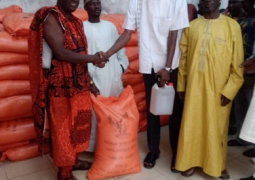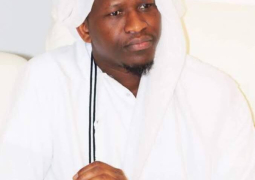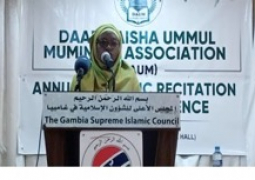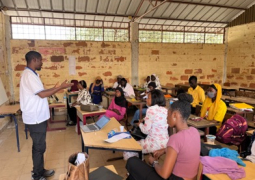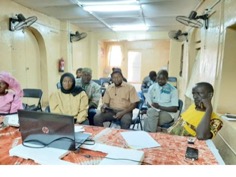
The project is co-financed by the European Union with partly matched funding by the UN Economic Commission for Africa.
The event held on the theme: “Engaging Communities Cultural Heritage” was convened ahead of the World Heritage Day.
The forum seeks to address the needs of the country’s heritage organisations and local groups.
"We conducted this to establish the sector’s specific training needs. As a result, we are delighted to offer this workshop and to be working with multiple and very diverse stakeholders including the NCAC, Banjul, Janjanbureh, Lower Niumi, and Basse local communities as well as the festival committees, tour guides and other local heritage-related business managers.” said Evangelos Kyriakidis, Heritage Organisation’s Director.
The workshops, which were held online are part of the Heritage Management Organisation’s “HerMaP Gambia” programme, which seeks to develop the business skills of heritage and cultural managers working for civil society organizations in The Gambia.
"The aim is to enable them to establish and better support heritage and cultural enterprises. It is hoped that supporting enterprise-building based on The Gambia’s cultural heritage will promote greater community solidarity and eventually provide opportunities that would help reduce the number of people being lost to The Gambia through brain drain."
HerMaP, she added, is a unique project that provides opportunity for stakeholders to engage with diverse heritage sectors of The Gambia, a country extremely rich in traditions, oral history, poetry, songs, and dance, among others.
"It is extremely encouraging to see the engagement of Gambian stakeholders who ultimately will have ownership of this program. It is important we thank all stakeholders in this programme and the European Commission for making it possible,” Kyriakidis added.
During the workshop, participants familiarised themselves with the context of community engagement through heritage, the importance of values in community initiative as well as discussion on methodologies based on ethnography and oral history.
“We need to redouble our efforts at proper management of our cultural heritage. This will enable our younger generation to benefit from it since it will also promote tourism’’, said Saloum Sheriff Janko, a participant from Artists in Alliance for Arts and Culture, a non-profit organisation.


